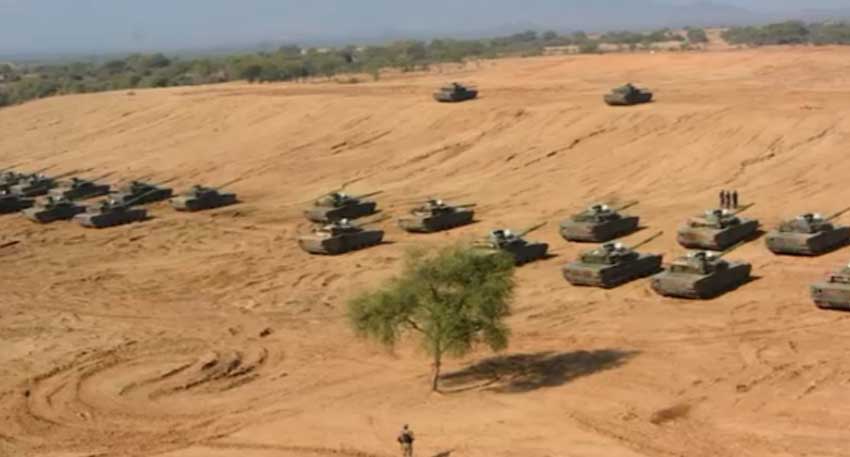
According to security sources, the military exercises featured live-fire drills and were aimed at delivering a strong and immediate response to any hostile action.
Personnel from multiple units participated, demonstrating advanced operational readiness and the use of modern battlefield systems.
The drills came in the wake of Pakistan’s retaliatory action on Wednesday, during which its forces destroyed an Indian checkpost following unprovoked small-arms fire from across the Line of Control (LoC) in the Kiani and Mandal sectors.
Also Read: PAF foils Indian fighter jets patrol attempt near LoC
Security officials confirmed that the counterstrike successfully neutralized enemy positions, including the Chakputra post in Indian Illegally Occupied Jammu and Kashmir (IIOJK).
Tensions between the two nuclear-armed neighbours have continued to rise since the April 22 attack in Pahalgam, which killed 26 tourists.
India accused Pakistan of involvement, despite providing no shred of evidence to support the baseless claim.
In the aftermath, a series of tit-for-tat diplomatic and strategic measures have been set in motion. India suspended the Indus Waters Treaty, revoked Pakistani visas, and closed the Wagah-Attari border crossing.
In response, Pakistan expelled Indian diplomats, hinted at suspending the Simla Agreement, froze visa issuance for Indian citizens—except Sikh pilgrims—and sealed the main crossing on its side.
Islamabad has strongly denied any role in the Pahalgam incident and has expressed willingness to cooperate in a transparent and impartial investigation.
Military sources emphasised that the Pakistan Army remains fully prepared to counter any form of aggression and will respond firmly if provoked.




